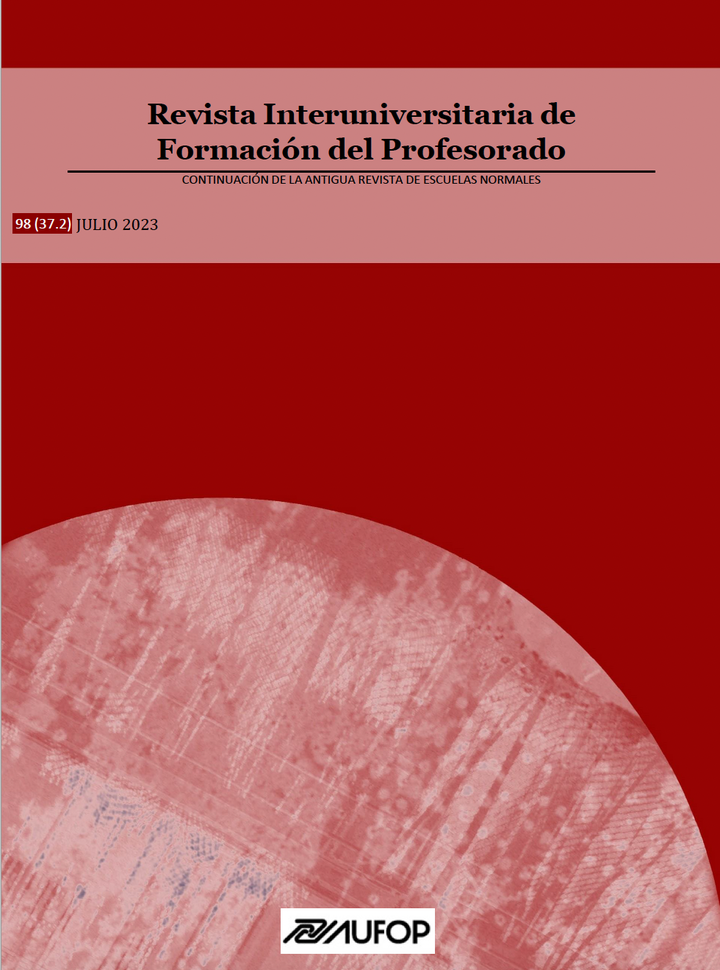Twitter y desarrollo profesional del futuro profesorado de matemáticas: percepciones de uso e intereses

Resumen
Diversos estudios señalan a Twitter como una red social interesante en el ámbito educativo. Numerosos usuarios comparten contenido, como recursos o actividades de aula, al mismo tiempo que se debate en torno a diversos temas. Así mismo, algunos autores sugieren que Twitter contribuye a la creación y desarrollo de comunidades de aprendizaje que repercuten positivamente en el desarrollo profesional del profesorado. Este artículo se plantea como objetivo explorar las percepciones de futuros profesores de matemáticas acerca del uso de Twitter como herramienta formativa. Para ello, se realiza una investigación con una muestra de 35 estudiantes de Máster de Profesorado de Educación Secundaria y Bachillerato de la especialidad de matemáticas. En primer lugar, se identifica mediante un cuestionario hasta qué punto los estudiantes son usuarios de esta red y, si lo hacen, con qué propósito. Posteriormente, se analizan los informes escritos elaborados por los estudiantes cuando se les solicita que describan dos hilos sobre un tema específico (probabilidad) y que analicen de forma argumentada su utilidad formativa. Finalmente, los participantes deben indicar qué cuentas consideran relevantes para su formación y por qué. Los resultados revelan que los participantes distinguen la diferente naturaleza de los hilos propuestos, pero prácticamente se limitan a mencionar aspectos epistémicos, cuando la diferencia radica en que un hilo versa sobre otras facetas del conocimiento didáctico-matemático. Además, observamos que siguen cuentas relacionadas con la materia, aduciendo motivos relacionados con la obtención de recursos educativos en torno a temas de divulgación matemática, conocimiento matemático escolar y del conocimiento didáctico-matemático.
Twitter and professional development of prospective math teachers: perceptions of use and interests
Abstract
Various studies point to Twitter as an interesting social network in the educational field. Numerous users share content, such as resources or classroom activities, while engaging in debates on various topics. Likewise, some authors suggest that Twitter contributes to the creation and development of learning communities that positively impact the professional development of teachers. This article aims to explore the perceptions of future mathematics teachers about the use of Twitter as a formative tool. To this end, we conducted a study with a sample of 35 Master’s students in Secondary Education and High School Teaching, specializing in mathematics. Firstly, a questionnaire was used to identify the extent to which students use this network and, if they do, for what purpose. Subsequently, we analyzed the written reports prepared by the students when asked to describe two threads on a specific topic (probability) and to discuss their formative usefulness. Finally, participants were asked to indicate which accounts they consider relevant to their training and why. The results reveal that participants distinguish the different nature of the proposed threads but almost exclusively mention epistemic aspects, even though one thread deals with other facets of didactic-mathematical knowledge. Moreover, we observed that they follow accounts related to the subject, citing reasons related to obtaining educational resources on topics of mathematical popularization, school mathematical knowledge, and didactic-mathematical knowledge.
Cítese como:
Beltrán-Pellicer, P., Martínez-Juste, S., & Muñoz-Escolano, J. M. (2023). Twitter y desarrollo profesional del futuro profesorado de matemáticas: percepciones de uso e intereses. Revista Interuniversitaria de Formación del Profesorado, 98(37.2), 187-206. https://doi.org/10.47553/rifop.v98i37.2.99326